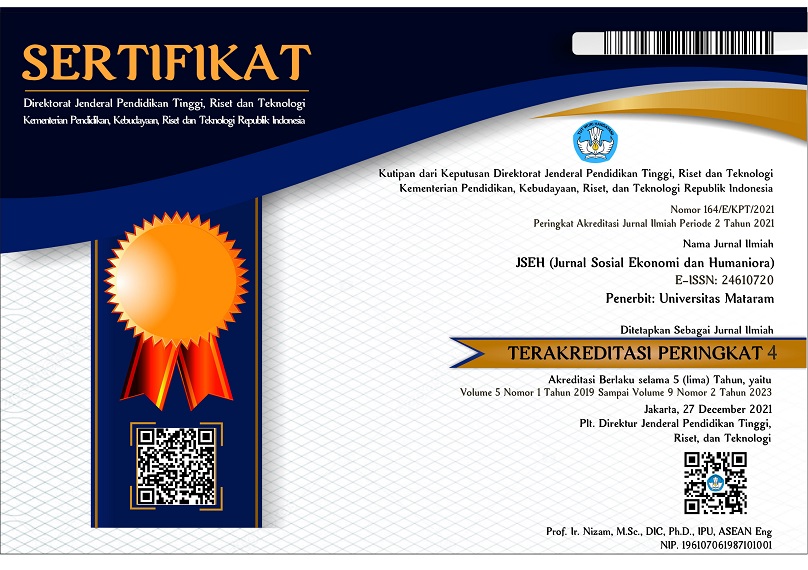Kebijakan Pedoman Pemidanaan Terhadap Pelaku Tindak Pidana Korupsi
DOI:
https://doi.org/10.29303/jseh.v8i1.30Keywords:
Corruption, Criminal ActsAbstract
The crime of corruption that occurred in Indonesia is very widespread and has an impact that is felt in all people's lives. Its development continues to increase from year to year, in the number of cases that continue to become cases with total state financial losses and in terms of the quality of corruption that is carried out systematically. An increase in criminal acts of corruption that will not control the impact that is not only limited to the life of the national economy but also to the life of the nation and state in general. This study uses a normative juridical approach. Normative research is carried out on theoretical matters as laws relating to law enforcement in criminal acts of corruption in Indonesia. With the Supreme Court Regulation Number 1 of 2020 concerning Guidelines for the Criminalization of Articles 2 and 3 of the Corruption Eradication Law, it is hoped that it will become a guideline in the context of imposing criminal penalties on perpetrators of corruption so that the punishment applied can guarantee legal certainty and approach a sense of justice in efforts to provide a deterrent effect
References
Buku
A.Z. Abidin, Bunga Rampai Hukum Pidana, Pradnya Paramita, Jakarta, tanpa tahun.
Barda Nawawi Arief, Bunga Rampai Kebijakan Hukum Pidana, Bandung: Citra Aditya Bakti, 1996.
Farkhani, “Sejarah Formalisasi Syari’at Islam Di Indonesia”, dalam Ishraqi, Vol. IV Nomor 2, Juli-Desember 2008.
Muh. Tahmid Nur, “Maslahat dalam Hukum Pidana Islam”, Jurnal Diskursus Islam, Volume 1 Nomor 2, Agustus 2013.
Muladi, Kapita Selekta Sistem Peradilan Pidana, Semarang: Badan Penerbit Universitas Diponegoro, 1995.
Muladi. Lembaga Pidana Bersyarat. Alumni. Bandung, 2000.
Ronny Hantijo Soemitro, Bahan Kuliah Metodologi Penelitian Hukum, UNDIP, 2001.
Samosir, Djisman. Fungsi Pidana Penjara Dalam Sistem Pemidanaan di Indonesia. Bina Cipta. Bandung. 1992.
Yasmirah Mandasari Saragih, T Prasetyo, dan J Hafidz. “Analisis Yuridis Kewenangan Komisi Pemberantasan Korupsi (KPK) sebagai Penuntut Pelaku Tindak Pidana Korupsi”. UNIFIKASI: Jurnal Ilmu Hukum 5 (1), 2018.
Zainal Abidin, Pemidanaan, Pidana dan Tindakan dalam Rancangan KUHP: Position Paper Advokasi RUU KUHP Seri 3, Jakarta: ELSAM, 2005.
Peraturan Perundang-undangan
Kitab Undang-undang Hukum Pidana (KUHP).
Undang-undang Nomor 31 Tahun 1999 jo Undang-undang Nomor 20 Tahun 2001 tentang Perubahan Atas Undang-undang Nomor 31 Tahun 1999 tentang Pemberantasan Tindak Pidana Korupsi.
Peraturan Mahkamah Agung Nomor 1 Tahun 2020 tentang Pedoman Pemidanaan Pasal 2 dan Pasal 3 Undang-Undang Pemberantasan Tindak Pidana Korupsi
Downloads
Published
How to Cite
Issue
Section
License
Copyright (c) 2022 Yasmirah Mandasari Saragih, Ariansyah Ariansyah

This work is licensed under a Creative Commons Attribution-NonCommercial 4.0 International License.








